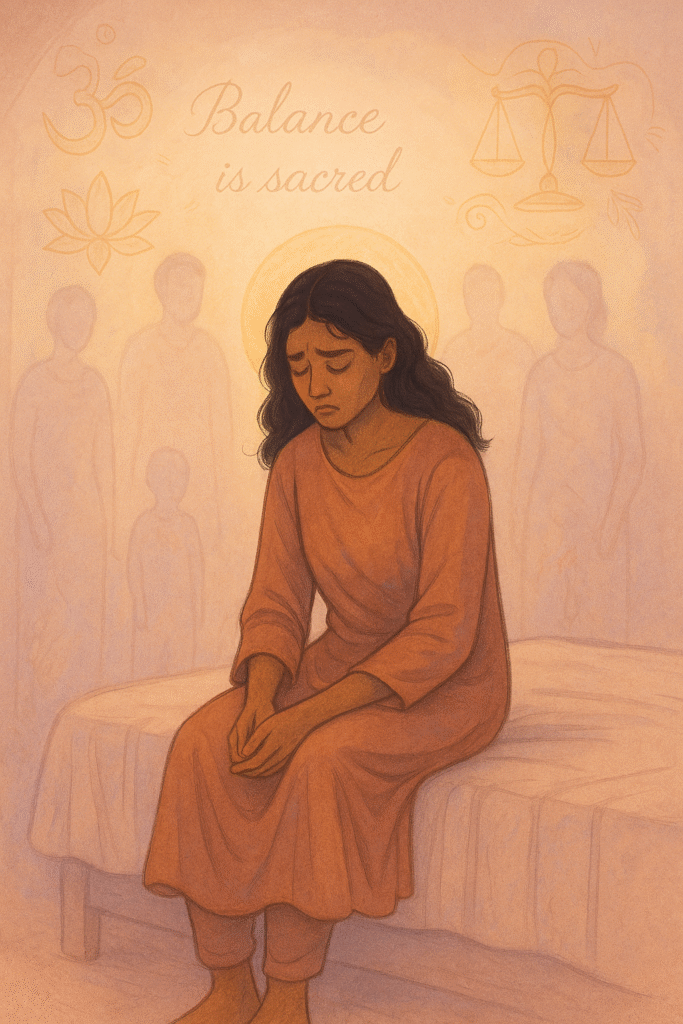”The ones who give too much are often the ones who needed someone the most.”

Have you ever caught yourself constantly being the emotional crutch, the secret keeper, the peacekeeper… the one who always shows up — even when you’re falling apart inside?
This blog isn’t just a piece of writing.
It’s a mirror.
For you.
For me.
For every person who has felt that their love is their labour.
What Is the Helper Syndrome?
Helper Syndrome is a psychological pattern where someone feels a compulsive need to help others — often at the expense of their own well-being. Also known as the “White Knight Syndrome” or “Compulsive Helping”
It’s common among people who are highly empathetic, sensitive, or have grown up with trauma , emotional neglect , or the need to earn love and approval by being useful.
It’s not kindness.
It’s not generosity.
It’s self-abandonment dressed as service.
People with Helper Syndrome often base their identity, worth, and sense of safety on being needed. It can show up as overgiving in relationships, overextending yourself to a limit where you no longer recognise your own self , tolerating disrespect, or attracting emotionally unavailable people — while secretly hoping to be chosen in return.
Signs You May Be Experiencing Helper Syndrome
- You feel guilty when you say no — even when you’re overwhelmed
- You feel needed, not necessarily loved
- You attract people who emotionally drain you but rarely reciprocate
- You put others’ healing before your own
- You feel responsible for “saving” people — even if it harms you
- You feel deeply hurt when others don’t appreciate or acknowledge your help
Sound familiar?
I know. Because I’ve lived it too.
My Own Reflection: The Soft Girl With A Warrior Heart
I’ve always been the type of girl to see the pain behind people’s actions. To always hold onto the potential that a person might have, even though the person has clearly proven they are incapable of rising to it in that point of time. To love even when I was being taken for granted. To always be there for everyone because “I know how it feels to have nobody” . To reach out with tenderness, even when silence echoed back.
There’s a softness in me. A deep, devotional kind of love.
But over the years, I’ve realized something important:
Not everyone deserves access to that love. Not everyone is capable of receiving it. The world we live in today is unfortunately a broken one. It’s hard for people to be vulnerable, to trust, to open up. And I realised that it is not my mission to fix these people. My soul’s purpose on Earth is to fix myself and in doing so I will contribute largely outwardly as well. I can’t help another person, when I can barely help myself.
Helper Syndrome is not about being a bad person. It’s about becoming so attuned to others that you forget your own frequency.
Why Do People Develop Helper Syndrome?
From what I’ve observed in myself — and in many of you beautiful souls reading this — Helper Syndrome often stems from:
- Childhood wounds where love had to be earned : Being praised as a child only when you scored higher marks in academics, or being appreciated as a good kid while doing some chore of service to the parents’
- Growing up as the emotionally mature one in a dysfunctional environment : Playing the role of a parent(therapist) to a parent, family or your siblings.
- A deep fear of abandonment : Not being chosen or rejection by someone, shakes up your self-worth.
- Internalized beliefs that say “I am only valuable when I’m useful” : Being of service to your family, teachers, or elders as a kid and being praised as a good child.
- A craving for control in uncertain emotional environments : Overloving or overextending yourself during conflicts to prove your worth and make someone see how good of a person you are.
The Sacred Shift: From Helper to Healer
We don’t have to stop helping.
But we do have to stop hurting ourselves in the process. These are the mindset shifts and inner work that has truly helped me take control of my life again and set firm boundaries. It might help you too.
Here’s how I’m learning to shift:
1.
I no longer chase — I attract.
If someone can’t meet me in presence, I let them go in peace. Whoever is meant for me will never confuse me or pass me by. I no longer give in to the hot& cold dynamic in relationships. If someone can’t show up with the depth and emotional safety that I offer, I let them go.
2.
I ask: “Am I giving from love or from lack?”
Helping from an empty cup is self-neglect, not service. Helping from overflow of love within myself is the only true love that I can give to someone. Giving from a place of lack or to be chosen by them in return comes from a place of selfishness not service.
3.
I now give myself the love I kept trying to earn from others.
Every time I feel the urge to fix someone, I fix my own boundaries instead. Through my own experiences,I have realised the harsh truth that every time I made efforts for someone or loved them and was neglected, I was secretly hoping for them to see my value and for them to validate my self worth by loving me back. Setting firm boundaries helped me raise my self perception and boost my confidence.
4.
I honour my softness but protect it with standards.
Not everyone gets to witness my vulnerability.For a long time, I believed that being soft meant being available. Being spiritual meant being endlessly forgiving. Being loving meant accepting crumbs and calling them divine. But that version of softness was a trauma response- not truth. Now I understand that my softness is my sacred power and I protect it with boundaries.Because my energy is not public property. It is sacred real estate — reserved for those who meet me with reciprocity, reverence, and responsibility.
You were never meant to carry it all.
You were never meant to be the one who always understands and never gets understood.
You deserve reciprocal softness.
You deserve to be chosen without effort.
You deserve to rest.
And as you step into your healing era, remember:
You are no longer the unpaid therapist of people who refuse to grow.
You are the divine child of the universe — here to expand, not shrink.
Let go of being the helper.
Become the healer.
For yourself, first.

